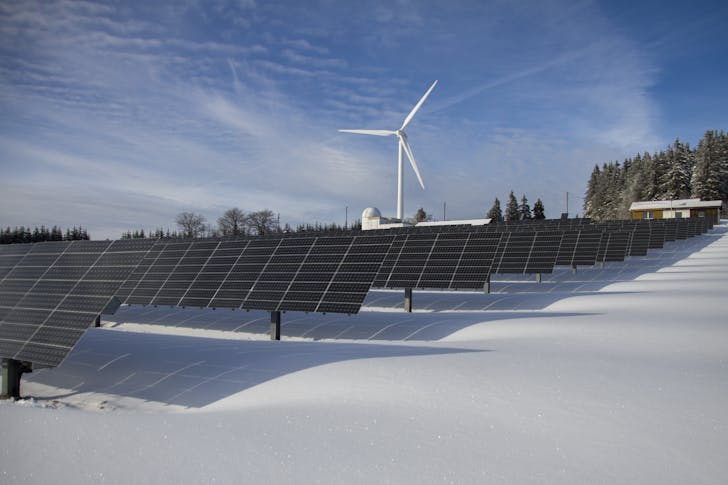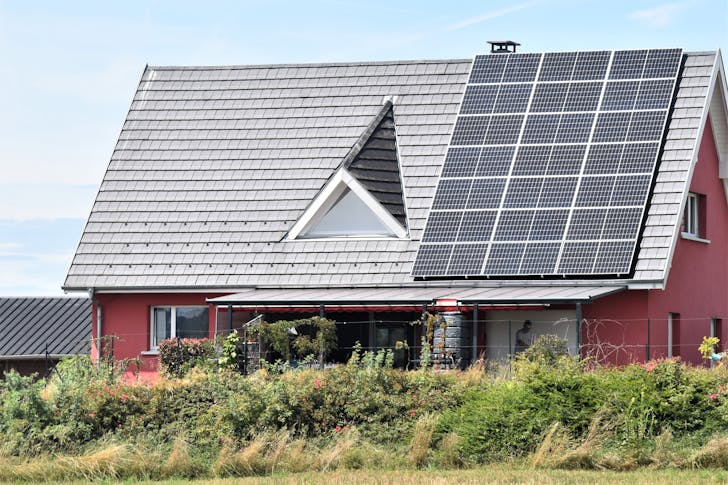Do solar panels have health risks? This question has been circulating for years, sparking debates and concerns among homeowners and potential solar energy adopters. With the growing shift towards renewable energy, understanding the potential health impacts of solar panels is crucial.
Do Solar Panels Have Health Risks?
To begin with, the notion that solar panels pose health risks primarily stems from misunderstandings. Solar panels are designed to harness sunlight and convert it into electricity through photovoltaic cells. These cells are made from materials like silicon, which are abundant and non-toxic.
The process of generating electricity through solar panels does not involve harmful emissions or radiation, unlike fossil fuel-based energy sources.

Pixabay / Pexels / Large-scale public health studies show - time and time again - that there are no associations between solar energy and cancer.
Similarly, global public health researchers have also found in every study that solar panels do not cause cancer at any production level. This comprehensive research debunks the myth that solar panels are linked to cancer or other serious health conditions.
What are Electromagnetic Fields (EMFs)?
One of the main concerns people have about solar panels is related to electromagnetic fields (EMFs). EMFs are a type of radiation emitted by all electrical devices, including solar panels. However, the level of EMF emitted by solar panels is extremely low and comparable to that of common household appliances like refrigerators and televisions.
Apart from that, the EMFs from solar panels are non-ionizing, meaning they do not have enough energy to remove tightly bound electrons from atoms or molecules. This makes them harmless to human health.
Extensive studies have shown that the EMFs produced by solar panels are well within the safety limits set by international health guidelines. Thus, ensuring that they pose no significant health risks.
Chemical Concerns and Safety Regulations
Another aspect worth exploring is the use of chemicals in the manufacturing of solar panels. Some people worry about the potential exposure to hazardous substances during the production and disposal of solar panels.
While it is true that certain chemicals are used in the production process, these substances are handled with strict safety regulations and standards to prevent any harm to workers and the environment.

Dan / Pexels / Essentially, the disposal of solar panels is managed through robust recycling programs that ensure the safe handling and reuse of materials.
Thus, this reduces the risk of chemical exposure and environmental contamination. So, as solar technology advances, manufacturers continue to improve the sustainability and safety of their product. Thus, further minimizing any potential health risks.
Environmental Impact and Human Health
Solar energy is widely recognized for its environmental benefits, which indirectly contribute to better human health. By reducing reliance on fossil fuels, solar panels help decrease air pollution and greenhouse gas emissions. Cleaner air leads to lower rates of respiratory and cardiovascular diseases, showcasing a positive impact on public health.
A persistent myth is that solar panels are associated with cancer. However, comprehensive research has repeatedly shown no link between solar energy and cancer. Studies conducted on rooftop installations and large solar farms across various regions have consistently concluded that there is no evidence to support the claim that solar panels cause cancer.
These findings are backed by global public health researchers who have meticulously analyzed the data. Similarly, the materials used in solar panels, including silicon, are non-carcinogenic. The process of harnessing solar energy does not produce carcinogenic emissions. Plus, it does not involve any radiation that could potentially lead to cancer. This should reassure anyone considering the switch to solar energy.
So, do solar panels have health risks? Not at all! Studies have shown for decades that solar panels are NOT associated with cancer or any other health issues.




